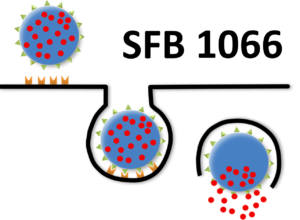„Quo Vadis Nanomedicine?“
10th – 11th April 2014 at Exeter University/UK, Centre for the Studies of Life Sciences
The aim of this two-day workshop at Exeter University / UK is to bring together leading nanomedical researchers and scholars from Science and Technology Studies to reflect and discuss the past, present and future of nanomedicine.
With the application of nanotechnologies to the medical field, researchers and clinicians expect groundbreaking diagnostic, therapeutic and regenerative innovations. Although nanomedical innovations are considered to be key enabling technologies of the 21st century, research on ‘smart’ nanomedical technologies is still at the very beginning. Currently, the process of translating research findings into applicable medicines and technologies has proven to be time- and cost-intensive with a moderate level of success (cf. White Paper to the Horizon 2020 Framework Programme for Research and Innovation – Recommendations from the Nanomedicine Community, ETP Nanomedicine 2013).
Against this background, the workshop aims to discuss the development of medical nanotechnologies and how they are perceived by relevant actors.
The workshop intends to tackle the following questions:
- How did nanomedical research evolve and how has it changed over the years?
- What is the future of nanomedical research, and how will it look?
- Have the expectations of nanomedical research changed over the years? If yes, why and how?
- What have been the main topics, matters of concern and controversies so far?
- What are the right materials for nanomedicines?
- How does nanomedical research affect the organization of everyday scientific practices?
- How does nanomedical research affect the working relations between different disciplines (experimental oncology, pharmacology, toxicology, etc.)?
- Has nanomedical research fostered working relations and communication practices with clinical practitioners and patients? If yes, how?
- What have been, what are and what will be the obstacles and main challenges of nanomedical research?
- Has nanomedical research affected the understandings of molecular processes?
- Has nanomedical research changed the understanding of what a disease is?
- How has nanomedical research altered the understanding of cancer or other major illnesses?
- Has nanomedical research affected pre-clinical and clinical work? If yes, why and how?
- Has nanomedical research affected the way ‘models’ are used? If yes, why and how?
- How is ‘personalized medicine’ related to nanomedical research? What are the main issues and concerns?
- How has nanomedical research affected the idea of ‘evidence-based medicine’?
- What are the challenges of ‘translational’ nanomedical research?
- How has nanomedicine been perceived and discussed by social sciences and philosophy, patients and the interested public?
- What have been the main matters of concern? Have these concerns changed over time?
- What are the ethical and social aspects of nanomedicine?
In line with these, and similar questions, prospective participants are asked to present their own work, experience and perception of nanomedical research in the past, present and future.
Since your leading expertise is central to nanotechnological and nanomedical research, the Schumpeter-Project ‚ ‘Innovations in Nanomedicine’, funded by the VolkswagenStiftung, and SFB 1O66, ’Nanodimensional Polymeric Therapeutics for Tumortherapy’ would be delighted to welcome you to Exeter.
University of Exeter in Exeter
Organisation Prof. Michael Schillmeier
Dr. Matthias Barz
Prof. Robert Luxenhofer
